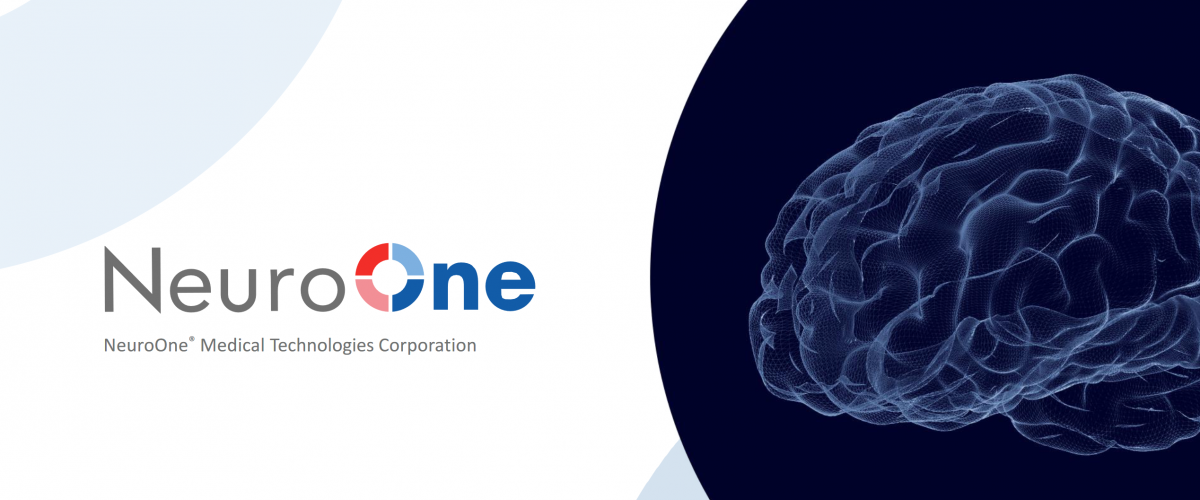Evo sEEG electrodes used for brain mapping in epilepsy surgery
(Eden Prairie, MN) — May 10, 2023 — NeuroOne Medical Technologies Corporation (NASDAQ: NMTC) (“NeuroOne” or the “Company”), a medical technology company focused on improving surgical care options and outcomes for patients suffering from neurological disorders, today announced that its first clinical case using the Evo® sEEG electrode was performed by Dr. Jamie Van Gompel at Mayo Clinic. Using a non-robotic stereotactic frame system, Evo electrodes were implanted successfully and met the Company’s product performance objectives.
Dave Rosa, CEO of NeuroOne, commented, “We would like to thank Dr. Van Gompel and his surgical team at Mayo for this ‘first in the world’ opportunity. We are ecstatic with the initial performance of our Evo sEEG electrodes which confirmed the results of many years of testing on the device. While we previously used the device intraoperatively, this was the first clinical case that was cleared by the FDA for less than 30 day use. We look forward to continued success with the launch of the technology as we continue the roll out of the technology through our distribution partner, Zimmer Biomet.”
NeuroOne provides a full line of electrode technology to address an estimated worldwide market of $100 million for patients requiring diagnostic brain mapping procedures. Epilepsy mapping procedures primarily utilize sEEG electrodes due to their less invasive insertion procedure, but less than 5% of people with drug-resistant epilepsy who are surgical candidates receive diagnostic procedures using sEEGs. NeuroOne believes there is a significant opportunity to expand market adoption of sEEG technology with broad U.S. distribution of its Evo product line.
About NeuroOne
NeuroOne Medical Technologies Corporation is a developmental stage company committed to providing minimally invasive and hi-definition solutions for EEG recording, brain stimulation and ablation solutions for patients suffering from epilepsy, Parkinson’s disease, dystonia, essential tremors, chronic pain due to failed back surgeries and other related neurological disorders that may improve patient outcomes and reduce procedural costs. The Company may also pursue applications for other areas such as depression, mood disorders, pain, incontinence, high blood pressure, and artificial intelligence. For more information, visit nmtc1.com.






